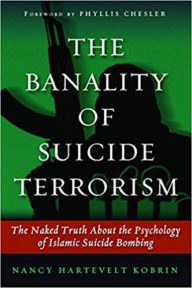
WHY SYRIAN REFUGEES ARE NOT LIKE JEWISH REFUGEES IN WWII
by JOEL B. POLLAK
Nov. 17, 2015
As the backlash against President Barack Obama’s plan to resettle Syrian refugees in the United States grows, the left is pushing back by comparing the crisis to the plight of Jewish refugees in World War II.
The argument is that the U.S. should have learned its mistake: by turning away Jewish refugees, America (and other nations) doomed many to death at the hands of the Nazis. In addition, Americans opposed resettling Jewish refugees then–and that was wrong. Conclusion: we must throw open our borders.
But there are several reasons the Jewish and Syrian crises have little in common, and why opposition is different in the two cases.
1. Jews were not a terror threat; there is evidence terrorists are hiding among Syrian refugees. Jewish refugees were not a threat to the countries where they sought asylum. In the early 1920s, fears of communist activism among Jewish immigrants had helped drive restrictive immigration laws, but that threat–and the over-reaction to it–had long passed. In contrast, at least one, and as many as three, of the terrorists in the recent Paris attacks allegedly hid among Syrian refugees, prompting legitimate fears.
2. Jews were singled out for persecution by the Nazis, not (initially) fleeing an ongoing war. If anyone has a unique moral claim that parallels the Jews of Europe, it is the Syrian Christians, Iraqi Yazidis, and other minorities being persecuted by radical Islamist forces in the Middle East. But that is not true of the broader wave of Syrian refugees. That is not to blame them for the war, but it does suggest there is a good moral case for distinguishing among refugees, rather than admitting all who wish to come.
3. Jews had nowhere to go; Syrian refugees should have many places to go. When Nazi Germany began persecuting Jews, the Jewish population had few–and dwindling–alternatives. The State of Israel did not exist, and Britain, to appease Arab leaders, tried to keep Jewish refugees out of Palestine. Syrian refugees, however, theoretically have many options. There are 57 member states of the Organization of Islamic Cooperation, for example; some, unconscionably, are refusing so far to admit any refugees.
4. Opposition to Jewish refugees was “racial”; opposition to Syrian refugees is based on security concerns. One of the main reasons immigration laws restricted Jewish entry into the U.S. was to promote the racial, i.e. genetic, superiority of the national “stock.” (Such eugenicist ideas were widespread, far beyond Nazi Germany.) In contrast, resistance to Syrian refugees has to do with fear of terrorism (see above), and valid concerns about importing radical Islam (a severe problem among Somali refugees).
5. Many of the Syrian “refugees” are neither Syrian, nor refugees. Many of those who have joined the “refugee” wave are from other countries in the Middle East, or even further afield. They pose as Syrian because they know they are likelier to be received sympathetically, given the civil war there. In addition, some–perhaps a majority–are “migrants,” not “refugees” as defined by international law. The “migrants” include those who have found shelter elsewhere, but prefer the West’s opportunities.
This story first appeared on: Tundra Tabloids







